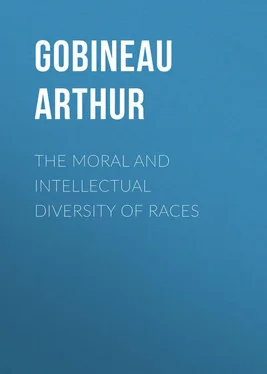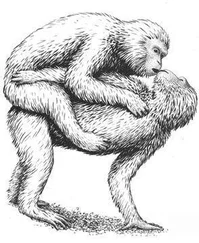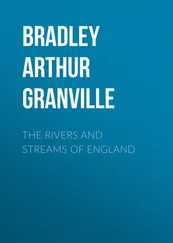Arthur Gobineau - The Moral and Intellectual Diversity of Races
Здесь есть возможность читать онлайн «Arthur Gobineau - The Moral and Intellectual Diversity of Races» — ознакомительный отрывок электронной книги совершенно бесплатно, а после прочтения отрывка купить полную версию. В некоторых случаях можно слушать аудио, скачать через торрент в формате fb2 и присутствует краткое содержание. Жанр: История, foreign_antique, foreign_prose, на английском языке. Описание произведения, (предисловие) а так же отзывы посетителей доступны на портале библиотеки ЛибКат.
- Название:The Moral and Intellectual Diversity of Races
- Автор:
- Жанр:
- Год:неизвестен
- ISBN:нет данных
- Рейтинг книги:4 / 5. Голосов: 1
-
Избранное:Добавить в избранное
- Отзывы:
-
Ваша оценка:
- 80
- 1
- 2
- 3
- 4
- 5
The Moral and Intellectual Diversity of Races: краткое содержание, описание и аннотация
Предлагаем к чтению аннотацию, описание, краткое содержание или предисловие (зависит от того, что написал сам автор книги «The Moral and Intellectual Diversity of Races»). Если вы не нашли необходимую информацию о книге — напишите в комментариях, мы постараемся отыскать её.
The Moral and Intellectual Diversity of Races — читать онлайн ознакомительный отрывок
Ниже представлен текст книги, разбитый по страницам. Система сохранения места последней прочитанной страницы, позволяет с удобством читать онлайн бесплатно книгу «The Moral and Intellectual Diversity of Races», без необходимости каждый раз заново искать на чём Вы остановились. Поставьте закладку, и сможете в любой момент перейти на страницу, на которой закончили чтение.
Интервал:
Закладка:
The strictly moral attributes of man, therefore, those attributes which enable him to communicate with his Maker, are common – probably in equal degree – to all men, and to all races of men. But his communications with the external world depend on his physical conformation. The body is the connecting link between the spirit and the material world, and, by its intimate relations to both, specially adapted to be the means of communication between them. There seems to me nothing irrational or irreligious in the doctrine that, according to the perfectness of this means of communication, must be the intercourse between the two. A person with dull auditory organs can never appreciate music, and whatever his talents otherwise may be, can never become a Meyerbeer or a Mozart. Upon quickness of perception, power of analysis and combination, perseverance and endurance, depend our intellectual faculties, both in their degree and their kind; and are not they blunted or otherwise modified in a morbid state of the body? I consider it therefore established beyond dispute, that a certain general physical conformation is productive of corresponding mental characteristics. A human being, whom God has created with a negro's skull and general physique , can never equal one with a Newton's or a Humboldt's cranial development, though the soul of both is equally precious in the eyes of the Lord, and should be in the eyes of all his followers. There is no tendency to materialism in this idea; I have no sympathy with those who deny the existence of the soul, because they cannot find it under the scalpel, and I consider the body not the mental agent, but the servant, the tool.
It is true that science has not discovered, and perhaps never will discover, what physical differences correspond to the differences in individual minds. Phrenology, starting with brilliant promises, and bringing to the task powers of no mean order, has failed. But there is a vast difference between the characteristics by which we distinguish individuals of the same race, and those by which we distinguish races themselves. The former are not strictly – at least not immediately – hereditary, for the child most often differs from both parents in body and mind, because no two individuals, as no two leaves of one tree, are precisely alike. But, although every oak-leaf differs from its fellow, we know the leaf of the oak-tree from that of the beech, or every other; and, in the same manner, races are distinguished by peculiarities which are hereditary and permanent. Thus, every negro differs from every other negro, else we could not tell them apart; yet all, if pure blood, have the same characteristics in common that distinguish them from the white. I have been prolix, but intentionally so, in my discrimination between individual distinction and those of race, because of the latter, comparative anatomy takes cognizance; the former are left to phrenology, and I wished to remove any suspicion that in the investigation of moral and intellectual diversities of races, recourse must be had to the ill-authenticated speculations of a dubious science. But, from the data of comparative anatomy, attained by a slow and cautious progress, we deduce that races are distinguished by certain permanent physical characteristics; and, if these physical characteristics correspond to the mental, it follows as an obvious conclusion that the latter are permanent also. History ratifies the conclusion, and the common sense of mankind practically acquiesces in it.
To return, then, to our author. I would add to his two elements of civilization a third – intellect per se ; or rather, to speak more correctly, I would subdivide one of his elements into two, of which one is probably dependent on physical conformation. The combinations will then be more complex, but will remove every difficulty.
I remarked that although we may consider all races as possessed of equal moral endowments, we yet may speak of moral diversities; because, without the light of revelation, man has nothing but his intellect whereby to compass the immaterial world, and the manifestation of his moral faculties must therefore be in proportion to the clearness of his intellectual, and their preponderance over the animal tendencies. The three I consider as existing about in the following relative proportions in the three great groups under which Mr. Gobineau and Mr. Latham 28have arranged the various races – a classification, however, which, as I already observed, I cannot entirely approve.
But the races comprised in each group vary among themselves, if not with regard to the relative proportion in which they possess the elements of civilization, at least in their intensity. The following formulas will, I think, apply to the majority of cases, and, at the same time, bring out my idea in a clearer light: —
If the animal propensities are strongly developed, and not tempered by the intellectual faculties, the moral conceptions must be exceedingly low, because they necessarily depend on the clearness, refinement, and comprehensiveness of the ideas derived from the material world through the senses. The religious cravings will, therefore, be contented with a gross worship of material objects, and the moral sense degenerate into a grovelling superstition. The utmost elevation which a population, so constituted, can reach, will be an unconscious impersonation of the good aspirations and the evil tendencies of their nature under the form of a good and an evil spirit, to the latter of which absurd and often bloody homage is paid. Government there can be no other than the right which force gives to the strong, and its forms will be slavery among themselves, and submissiveness of all to a tyrannical absolutism.
When the same animal propensities are combined with intellect of a higher order, the moral faculties have more room for action. The penetration of intellect will not be long in discovering that the gratification of physical desires is easiest and safest in a state of order and stability. Hence a more complex system of legislation both social and political. The conceptions of the Deity will be more elevated and refined, though the idea of a future state will probably be connected with visions of material enjoyment, as in the paradise of the Mohammedans.
Where the animal propensities are weak and the intellect feeble, a vegetating national life results. No political organization, or of the very simplest kind. Few laws, for what need of restraining passions which do not exist. The moral sense content with the vague recognition of a superior being, to whom few or no rites are rendered.

1. According to Latham's classification, op. cit.
But when the animal propensities are so moderate as to be subordinate to an intellect more or less vigorous, the moral aspirations will yearn towards the regions of the abstract. Religion becomes a system of metaphysics, and often loses itself in the mazes of its own subtlety. The political organization and civil legislation will be simple, for there are few passions to restrain; but the laws which regulate social intercourse will be many and various, and supposed to emanate directly from the Deity.
Strong animal passions, joined to an intellect equally strong, allow the greatest expanse for the moral sense. Political organizations the most complex and varied, social and civil laws the most studied, will be the outward character of a society composed of such elements. Internally we shall perceive the greatest contrasts of individual goodness and wickedness. Religion will be a symbolism of human passions and the natural elements for the many, an ingenious fabric of moral speculations for the few.
Читать дальшеИнтервал:
Закладка:
Похожие книги на «The Moral and Intellectual Diversity of Races»
Представляем Вашему вниманию похожие книги на «The Moral and Intellectual Diversity of Races» списком для выбора. Мы отобрали схожую по названию и смыслу литературу в надежде предоставить читателям больше вариантов отыскать новые, интересные, ещё непрочитанные произведения.
Обсуждение, отзывы о книге «The Moral and Intellectual Diversity of Races» и просто собственные мнения читателей. Оставьте ваши комментарии, напишите, что Вы думаете о произведении, его смысле или главных героях. Укажите что конкретно понравилось, а что нет, и почему Вы так считаете.












